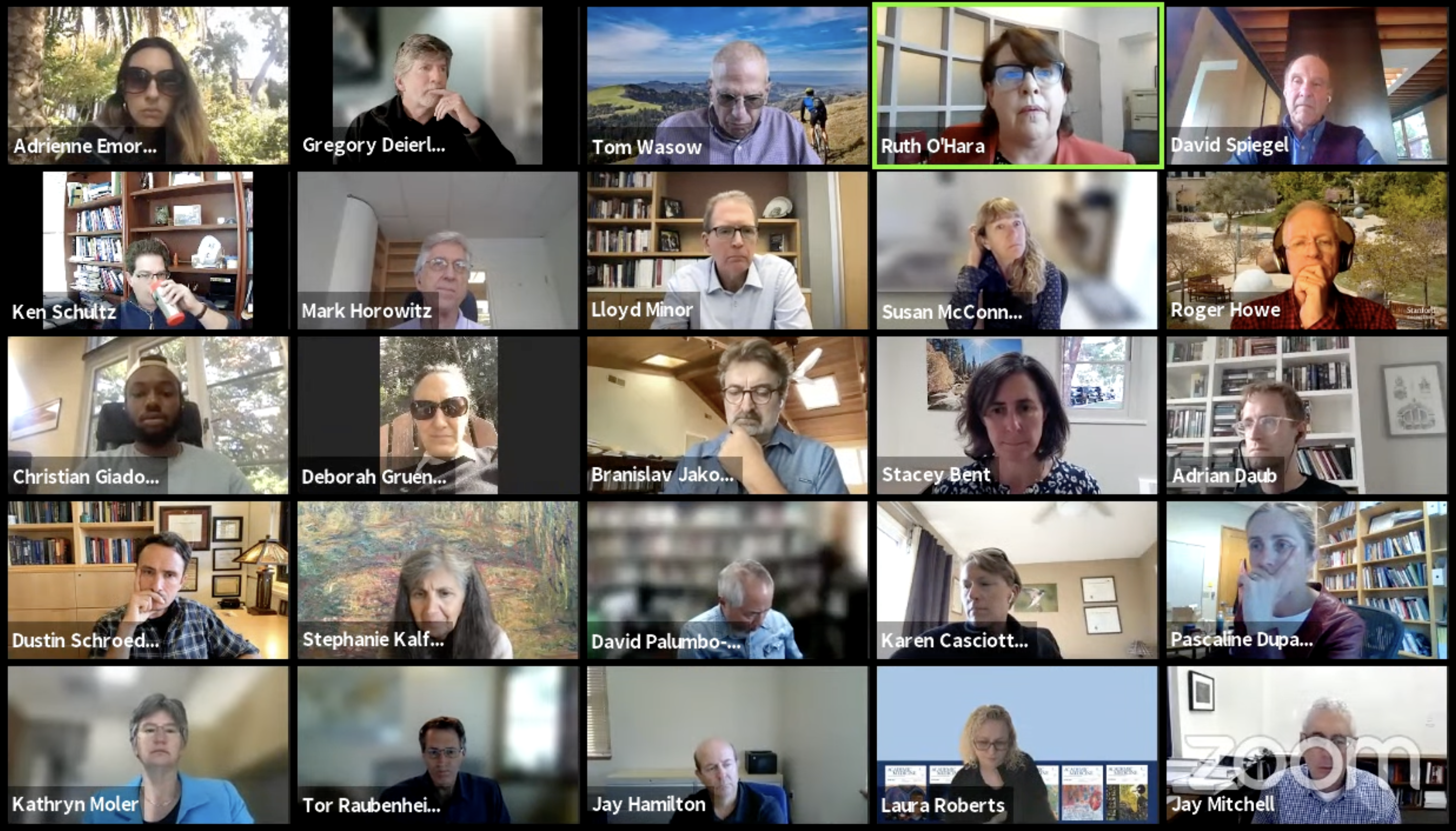The 54th Faculty Senate set the stage for its yearlong term that will include reports on free expression on campus, the pandemic’s continued impact on the University and the Global Engagement Review Program, which reviews foreign-sponsored research at Stanford, during its first meeting on Thursday.
The virtual meeting centered on administrative business. The Senate unanimously voted to provide a second extension to legislation passed in 2020 that approved the use of administrative sessions to address issues with COVID-19.
The intensity that characterized last term’s Senate meetings, particularly during discussions related to the Hoover Institution, was missing on Thursday. President Marc Tessier-Lavigne and Provost Persis Drell, who traditionally provide reports during Senate meetings, were notably absent, as they were attending the memorial service for the late former Secretary of State George Shultz.
Despite her absence, Drell updated senators on the University’s new vaccine requirement for employees, which she previously announced in an email to the community on Wednesday, in a written statement. As a federal contractor, Stanford is required to have all employees vaccinated against COVID-19 in compliance with an executive order issued by President Joe Biden, according to Drell.
“Our current accommodation for people who simply choose not to be vaccinated or do not want to reveal their vaccination status to us will no longer be available,” Drell said in her statement. “Those who do not comply with this new vaccine mandate will no longer be able to perform work for the University.”
This year, the Senate will hear the highly anticipated report on campus climate — an initiative spearheaded by comparative literature professor David Palumbo-Liu. The Planning and Policy Board Subcommittee on Campus Climate has been interviewing students, staff and resident fellows on the state of campus discourse.
The committee presented its preliminary findings to the Senate in April, finding that a common thread among the students was a feeling of isolation. The sentiment stems from some students’ belief that administrators and faculty lack understanding of the “wide diversities of student lives,” which has resulted in students becoming increasingly dependent on small groups, according to Palumbo-Liu.
The Faculty Senate approved the Global Engagement Review Program in late 2019, which was tasked with reviewing the University’s moratorium on Chinese telecom conglomerate Huawei. In 2018, Stanford placed a moratorium on new research support from the Chinese telecoms company Huawei amid rising U.S. pressure on a firm the government sees as part of a broader national security threat from China.
But more than two years after it first halted funding, Stanford in April opted to indefinitely extend its moratorium on research funding from Chinese telecom conglomerate Huawei and its U.S. affiliate Futurewei. The University said that the moratorium will be revisited annually by the Global Engagement Review Program or if there are notable changes in government policy and assessment of the threat Huawei poses to national security. Senators said they will be compiling a report about the program this year.
At the end of the meeting, Senate Chair Ruth O’Hara, a professor of psychiatry and behavioral sciences, introduced Christian Giadolor, the president of the Associated Students of Stanford University. In his remarks, Giadolor talked about the diverse nature of the ASSU, the student body government’s mission centered around public service and his desire to foster “synergy” between the ASSU and faculty.
“Our primary responsibility is to serve student interests and to serve the student body,” Giadolor said. “But sometimes that may be misaligned, and trying to figure out that nuance and complexity is a challenge, not just for myself personally, but also for other members of the ASSU.”
While the session on Thursday was held on Zoom, the Senate discussed plans for future meetings to be held in person — another milestone in the University’s return to normalcy.
